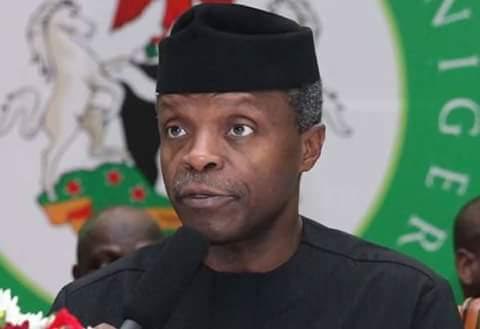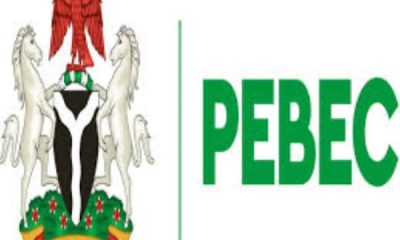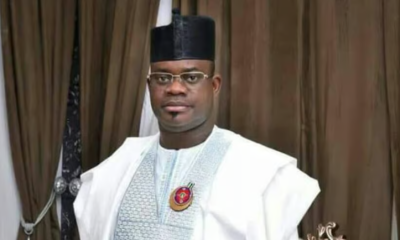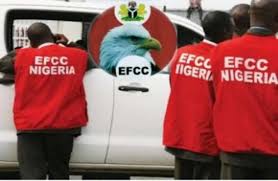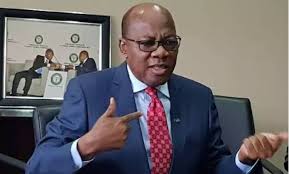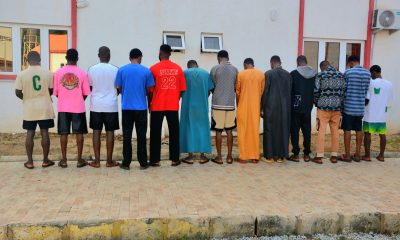Acting President Yemi Osinbajo said public resources that were looted in the past few years in the country would be accounted for by those involved.
Osinbajo stated this today in a nationwide broadcast to mark the second anniversary of President Muhammadu Buhari’s administration.
He said that accounting for the funds had become imperative in view of the determination of the administration to bring persons accused of corruption to justice.
According to him, funds appropriated to build roads, railway lines, power plants, and to equip the military, that have been stolen or diverted into private pockets, must be retrieved and the culprits brought to justice.
“We believe that the looting of public resources that took place in the past few years has to be accounted for.
“Many have said that the process is slow, and that is true. Corruption has fought back with tremendous resources and our system of administration of justice has been quite slow.
“But the good news for justice is that our law does not recognize a time bar for the prosecution of corruption and other crimes, and we will not relent in our efforts to apprehend and bring corruption suspects to justice,” Osinbajo said.
He stated that the government had also started re-equipping the prosecution teams, and that part of the expected judicial reforms was to dedicate some specific courts to the trial of corruption cases.
The acting president disclosed that the All Progressives Congress-led Federal Government was also institutionalizing safeguards and deterrents in the process.
He said, “we have expanded the coverage of the Treasury Single Account (TSA).
“We have introduced more efficient accounting and budgeting systems across the Federal Government. We have also launched an extremely successful Whistleblower Policy.
“The Efficiency Unit of the Federal Ministry of Finance has succeeded in plugging leakages amounting to billions of naira, over the last two years.
“We have ended expensive and much-abused fertilizer and petrol subsidy regimes.
“We have taken very seriously our promise to save and invest for the future, even against the backdrop of our revenue challenges.
“We have in the last two years added 500 million dollars to our Sovereign Wealth Fund and 87 million dollars to the Excess Crude Account.
“This is the very opposite of the situation before now, when rising oil prices failed to translate to rising levels of savings and investment.’’
Osinbajo, however, acknowledged that the economy had proven to be the biggest challenge of all.
“Let me first express just how concerned we have been since this administration took office, about the impact of the economic difficulties on our citizens.
“Through no fault of theirs, some companies shut down their operations; others downsized. People lost jobs and had to endure rising food prices.
“In some states, civil servants worked months on end without the guarantee of a salary, even as rents and school fees and other expenses continued to show up like clockwork.
“We have been extremely mindful of the many sacrifices that you have had to make over the last few years.
“And for this reason this administration’s work on the economic front has been targeted at a combination of short-term interventions to cushion the pain, as well as medium to long term efforts aimed at rebuilding an economy.
“The economy is no longer helplessly dependent on the price of crude oil.’’
According to him, the short-term interventions include putting together a series of bailout packages for state governments to enable them bridge their salary shortfalls, an issue President Buhari has consistently expressed his concerns about.
Osinbajo revealed that the government had also begun the laying a framework for its Social Intervention Programme, which he described as “the most ambitious in the history of the country’’.

 Health5 days ago
Health5 days ago
 Entertainment6 days ago
Entertainment6 days ago
 Crime5 days ago
Crime5 days ago
 Education7 days ago
Education7 days ago
 Health7 days ago
Health7 days ago
 Comments and Issues6 days ago
Comments and Issues6 days ago
 Football6 days ago
Football6 days ago
 Latest6 days ago
Latest6 days ago
